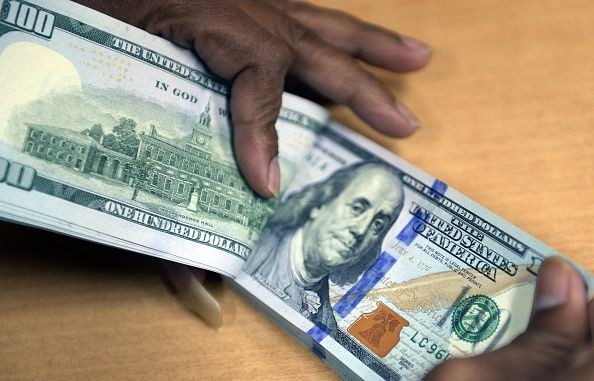Trump Considers Weakening Dollar Ahead Of 2020 Elections

The Trump administration is again toying with the idea of abandoning the strong dollar policy supported by the past four administrations and might intentionally weaken the dollar, instead.
President Donald Trump has long and loudly condemned U.S. trading partners such as China and the European Union for allegedly weakening their currencies to gain an edge in trade at the expense of the United States. That Trump now seems open to manipulating the dollar lower represents a stunning about face apparently intended to boost U.S. economic growth being stunted by his protectionist trade wars against the rest of the world.
Trump’s willingness to lower the dollar to score political points isn't new. Last week, reports say he ordered the White House staff to find a way to weaken the dollar in an effort to boost the economy ahead of the 2020 election and thus his chances for re-election.
Two weeks ago, Trump tweeted the U.S. should emulate China and Europe’s “currency manipulation game.”
Global investment management firm, PIMCO, believes Trump will go ahead and weaken the dollar.
Joachim Fels, PIMCO managing director and global economic advisor, said Trump and other administration officials have been more open about their interest in a weaker dollar. This implies the U.S. could intervene in the market, said Fels.
“Following a pause since early 2018, the cold currency war that has been waging between the world’s major trading blocs for more than five years has been flaring up again,” said Fels.
“Moreover, even an escalation to a full-blown currency war with direct intervention by the U.S. and other major governments/central banks to weaken their currencies, while not a near-term probability, can no longer be ruled out,” wrote Fels to company investors.
Strategists from Goldman Sachs and Bank of America Merrill Lynch last week said intervention risks are low but rising. Goldman analysts said their views about currency policy comes against a backdrop where the "President has surprised investors on trade policy issues, which has created a perception that ‘anything is possible.’"
“While this would cut against the norms of recent decades, developed market central banks have recently used their balance sheets more actively, and FX intervention is akin to unconventional monetary policy, at least in an operational sense,” noted Goldman analysts.
Trump and his finance officials have made some comments indicating the administration might be considering an intervention, believes Ben Randol, G-10 foreign exchange strategist at Bank of America Merrill Lynch.
“The dollar is about 10% or more overvalued relative to its long term equilibrium,” according to Randol.
Randol, however, believes it’s not likely the administration will go as far as to intentionally weaken the dollar. That’s because G20 countries have agreed not to conduct solo interventions unless there is extreme currency volatility.
Randol said the risk of the U.S. weakening the dollar shouldn’t be ignored, but he expects Trump to talk more about it rather than act on it.
© Copyright IBTimes 2024. All rights reserved.





















